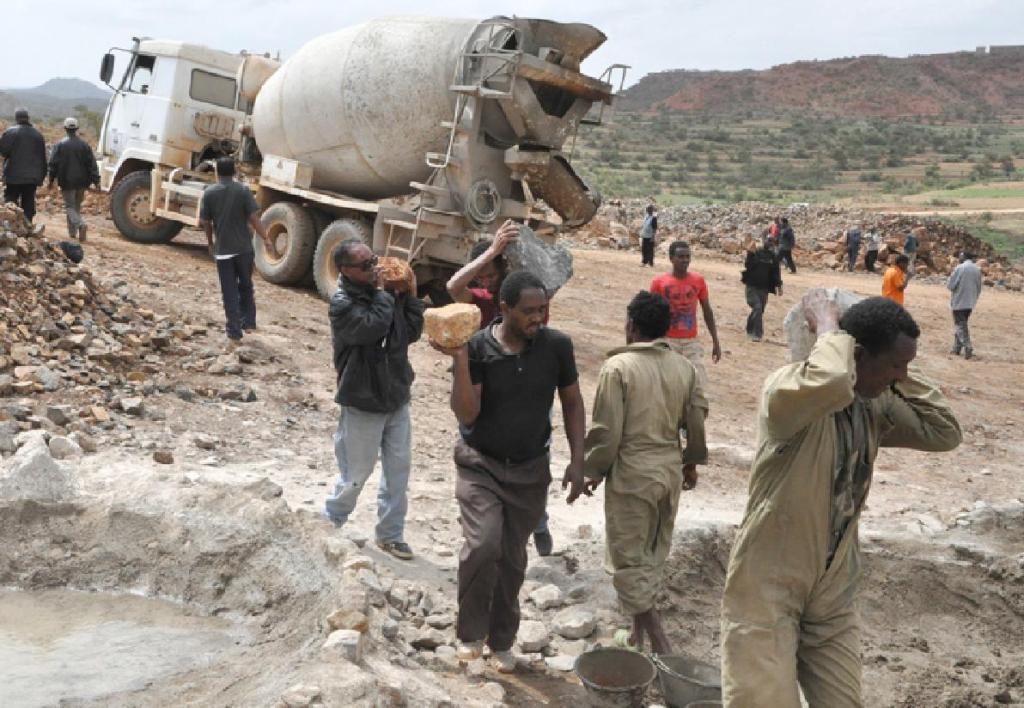The European Union has announced that it will no longer be funding road construction projects in Eritrea, resulting in the withdrawal of a months-long lawsuit against the bloc.
In May, the Amsterdam-based group Foundation Human Rights for Eritreans had filed a lawsuit against the E.U. for funding a construction project it openly acknowledged used forced labor.
The project, a road connecting the Ethiopian border with the port city of Massawa, was revealed in January to use National Service conscripts, meaning the participation of an unknown number of its workers was forced.
The E.U. partly financed the project by paying for heavy equipment through its Emergency Trust Fund For Africa—a notoriously opaque fund set up in 2015 as part of an effort to stem migration.
But the E.U. has now announced, partly in response to the lawsuit, that It will no longer be funding road projects in Eritrea, diverting all funds to other projects in the country and beyond.
Kennedy Van Der Laan, the law firm representing the Foundation, announced in a press release this week that it has withdrawn the lawsuit as a result of the move—but that concerns remain.
The Foundation is largely pleased with these steps, says Emiel Jurjens, the Foundation’s lawyer. “The EU has recognized that supporting a project using forced labour is unacceptable. That is why the EU has now abandoned this policy by saying “no more roads”. The goal of the Foundation has thus been achieved. This is an important victory that means alot to the Foundation and to the Eritrean people”. However, this does not change the fact that the human rights situation in Eritrea remains of great concern.
The fact that some funds are still going to Eritrea, including to its effectively non-existent judiciary system, means that the E.U. is still supporting the National Service indirectly.
International actors can help to bring an end to forced labor in the country by making it both politically and economically costly for the system to continue.
Freedom United has gathered over 10,000 signatures calling on foreign businesses and institutions to divest from the country and declare their opposition to forced conscription.
Join them an add your name today.
Next Thursday, October 1st, Freedom United will host a webinar with two partners on the campaign with first-hand experience in Eritrea.
Habte Hagos, founder and chairman of Eritrea Focus, and Martin Plaut, the former editor of BBC World Service Africa and author of Understanding Eritrea, will discuss the persistence of forced labor in Eritrea and the importance of Freedom United’s divestment campaign.

Leave a Reply